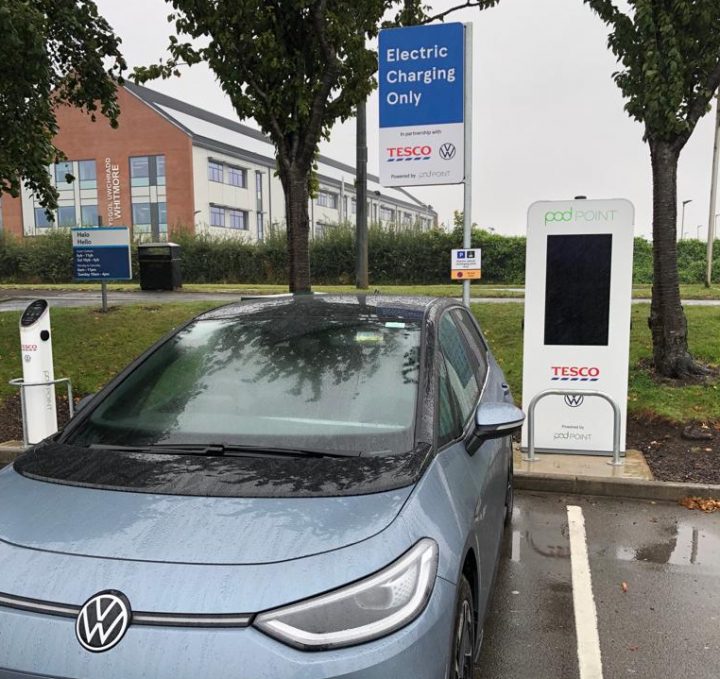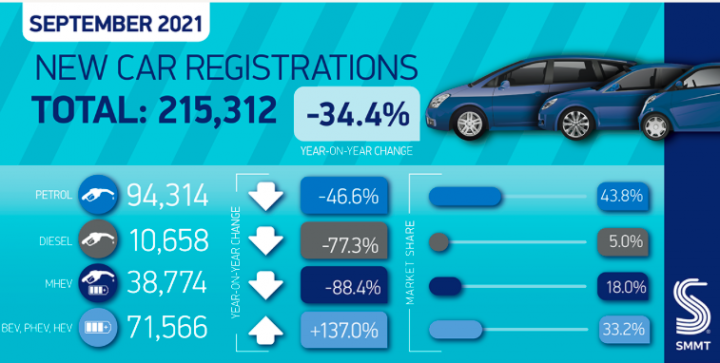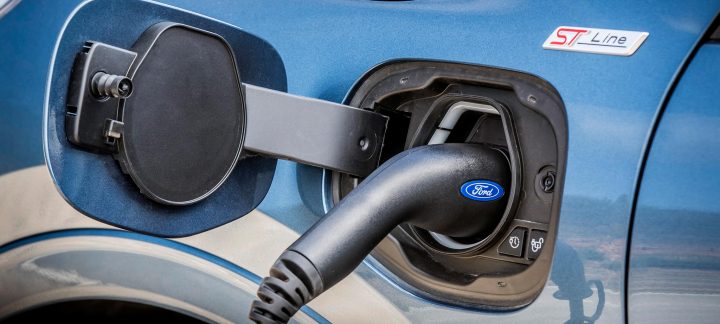With new car registrations at their lowest since 1999 and the fuel crisis showing no sign of slowing data from New AutoMotive that shows “range anxiety” is becoming a thing of the past for electric vehicle drives with the number of charging points across the UK increasing by 32%, from 18,265 in July 2020 to 24,374 in July 2021 – an increase of 6,000.
Sales in September show the only segment of the UK car market that has grown is fully electric cars, with sales jumping by 30% from 20,800 to 29,600 year-on-year – diesel sales down by 72% since September 2020 last year

Often the argument against electric vehicles (EVs) has boiled down to one thing, range anxiety – Turns out, switching to electric vehicles may be the best way to avoid range anxiety in your car.
As petrol queues in Britain show, there are advantages to owning an electric vehicle – not least because there are over 44,000 publicly available charging points across the UK v 8,000 petrol stations – indeed, on a motorways and A roads you’re never more than 25 miles from a charging point.
Ben Nelmes, Head of Policy and Research at New AutoMotive, said, “September is often a bumper month for EV sales, but even these statistics surprised us. Twice as many people bought electric cars as bought diesel cars, showing the ongoing slump in sales of polluting diesels.
“In many UK cities – Newcastle, Bristol, London, Oxford, Cambridge and Birmingham, the figures suggest that 1 in 5 cars bought are fully electric. That is good news for the millions of people living in areas with illegally high levels of air pollution.
“Our data show that the market for EVs is incredibly diverse, with a growing number of brands and models bringing electric cars to market. Among the brands that are fastest to electrify, Jaguar tops the table for the third month in a row – a British success story that we can all celebrate.
UK market overview
Sales of conventional fuel types slumped in September 2021 while EV sales jumped.
Petrol registrations were down by almost half from 189,700 in September 2020 to 99,900 in September 2021. New diesel registrations slumped from 51,700 to 14,600. The number of new hybrids bought stayed static at 50,000. The only segment of the market that experienced growth was fully electric cars, which grew by 30% from 20,800 to 29,600 year on year.

The race for EV market share
One of the reasons for September’s bumper EV numbers is that it is a month where Tesla makes a lot of deliveries, typically this happens in four months of the year.
Their 21% share of the market is impressive, but masks the fact that for many months of the year, they make far fewer or no deliveries. Beyond Tesla, VW leads the race for EV market share with almost 9% of the market, but the low market share numbers for every manufacturer shows how many brands are piling into the market and racing to electrify their models.


